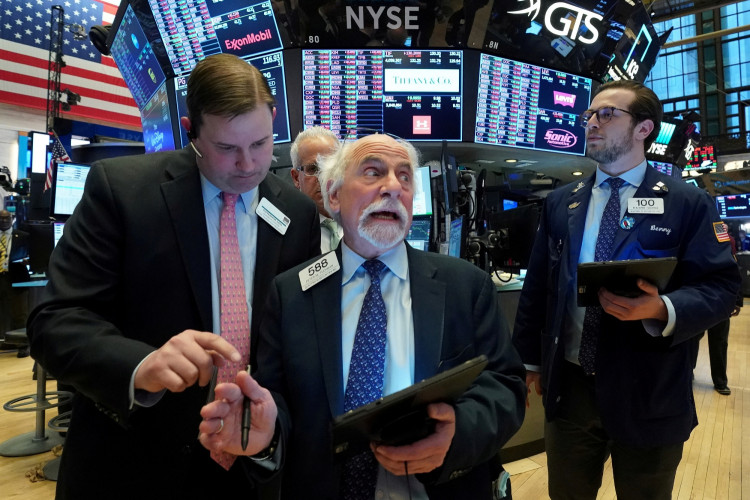Trading on the New York Stock Exchange was temporarily halted for 15 minutes following a massive drop in major indexes. The Dow Jones Industrial Average lost 2,013 points, or roughly 7.8 percent, the biggest single-day drop of the index. The NASDAQ and the Standard & Poor's 500-stock index also fell at the start fo the week. The dips in the major indexes was a direct result of the oil price crash and rising concerns over the global viral epidemic.
The sell-off began immediately after the opening of the markets on Monday, triggering a circuit breaker on the floor that halted trading for 15 minutes. The dip was the fifth time the Dow had fallen by more than 1,000 since 2017. It was also the biggest point loss for the index on record, beating the previous percentile drop during the financial crisis in 2008.
Other major indexes on the US markets also plunged by significant amounts at the start of the week. The Standard & Poor's 500-stock index dropped by 7.62 percent, while the NASDAQ index fell by around 7.3 percent during the day. The plunged caused a surge in US government bonds as investors shifted to the safer asset. The 30-year US Treasury bill's yield dropped below 1 percent to a new low of 0.866 percent before recovering to 0.94 percent at the end of the day's trading.
Analysts at Black Rock Investment wrote on a report on Monday that the response of the stock market is reminiscent of the global financial crisis in 2008. However, they believe that investors will be more level-headed this time around, with most taking a long-term perspective on the short-term effects of the oil price drop and the viral epidemic.
Global financial markets have already taken a beating from the growing concerns over the viral epidemic. Monday's massive drop was largest attributed to the collapse of the pact between OPEC and Russia, which caused a significant dip in oil prices. Following the collapse, Saudi Arabia announced that it would be cutting oil prices and increasing supply to counter Russia's rejection of OPEC's suggest production cuts. The move is expected to result in an oil price war that will have far-reaching implications for other major producers.
Oil prices globally fell following the collapse of the pact. The Brent Oil benchmark price had dropped by around $11 per barrel on Sunday, its largest price drop since the Gulf War in 1991. Oil-related listings on the global markets dropped in response, with investors expecting a lower bottom before the commodity's price settles down.
Industry experts have stated that oil prices could bottom out sooner if oil producers cooperate and reach an agreement. However, an all-out price war between Middle Eastern producers and Russia could result in massive volatility over the short-term.





